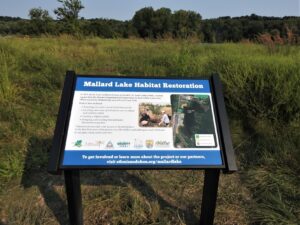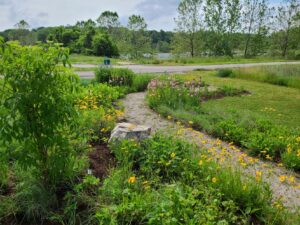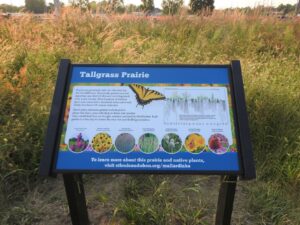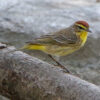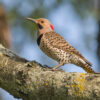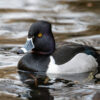TEXT
The History and Purpose of the Three Pollinator Gardens at Mallard Lake
By Tessa Wasserman
The concept of installing three pollinator-friendly gardens set along the picturesque walking/biking paths at Mallard Lake in Creve Coeur Memorial Park began in the fall of 2014. With a $20,000 Community Conservation Grant from MDC, the St. Louis County Parks Department planned a three year habitat restoration project called the “Mallard Lake Prairie Project” along with several partnering entities. This project aimed to convert 7.06 acres covered in mowed fescue, invasive plants, and non-native vegetation into six critically needed native habitat management areas including three educational pollinator gardens. The other areas would become a one acre woodland, six acre prairie, and restored wetland along the lake’s edge.
With over 2 million visitors annually, Creve Coeur Memorial Park was a perfect location to showcase pollinator gardening. The three gardens were to be models for homeowners to observe how native plantings can fit beautifully into a residential landscape. This concept aligned with one of the goals of the U.S. Fish & Wildlife Service’s Urban Initiative – to connect diverse urban populations with nature.
Help from some St. Louis Wild Ones members, Jeanne Cablish, Karen Spreitler, and Susan Van De Riet, came in the form of providing technical assistance with layout and design. Each garden made use of hardscape and native species that were versatile, attractive and functional.
The designs began taking shape with the aid of St. Louis County Parks, U.S. Fish & Wildlife Service, Forest ReLeaf, St. Louis Audubon Society and the Creve Coeur Lake House; killing grasses, removing sod, extricating bush honeysuckle, laying hardscape and coordinating volunteers.
Other project partners, St. Louis Chapter of Wild Ones and Missouri Master Naturalists-Great Rivers Chapter, volunteered many hours to help install the plants and water and mulch.
Now after five years, the gardens have matured beautifully and only the interpretive signage remains to be added. Hopefully, 2020 will be the year this last piece of the project comes to fruition.

